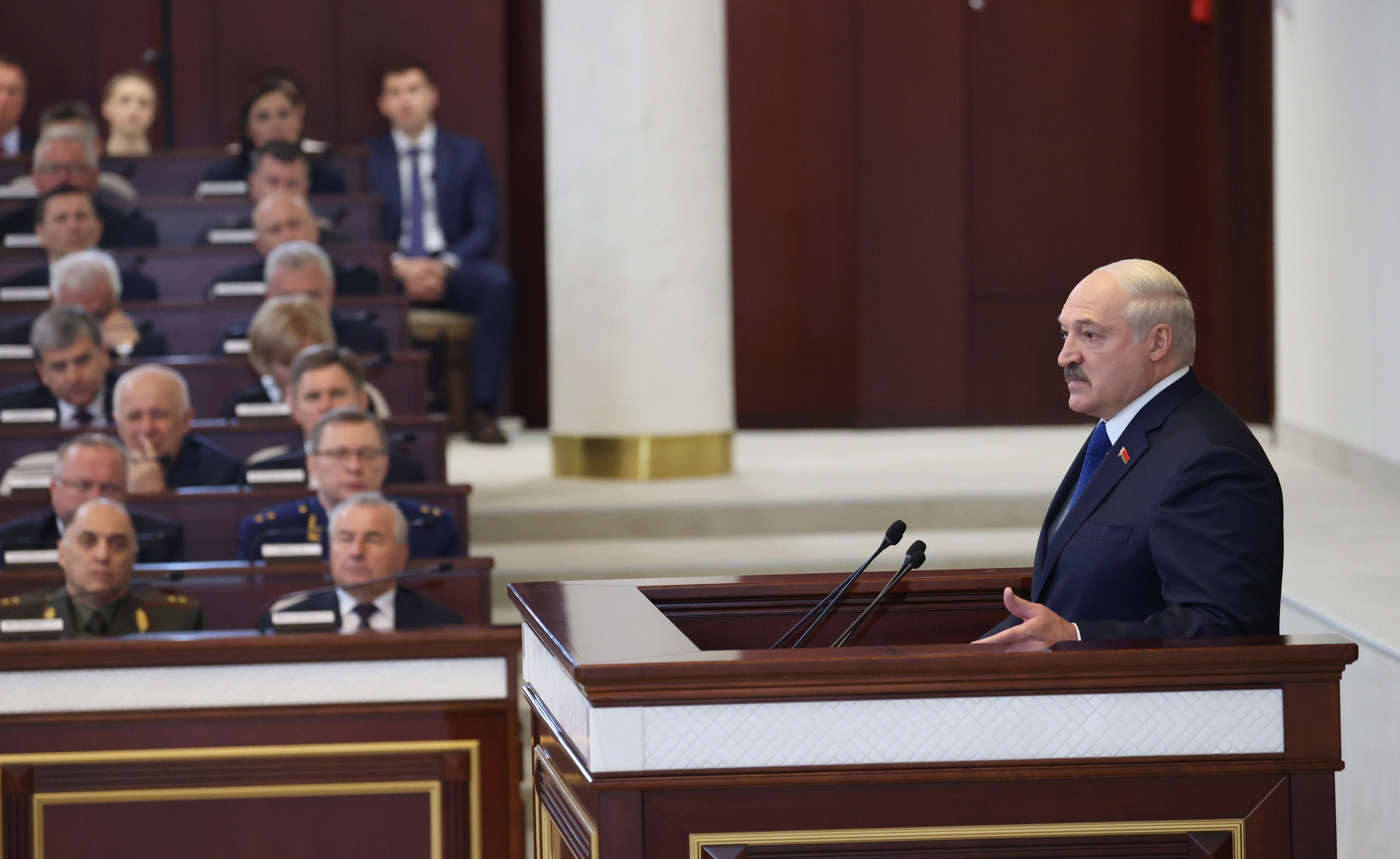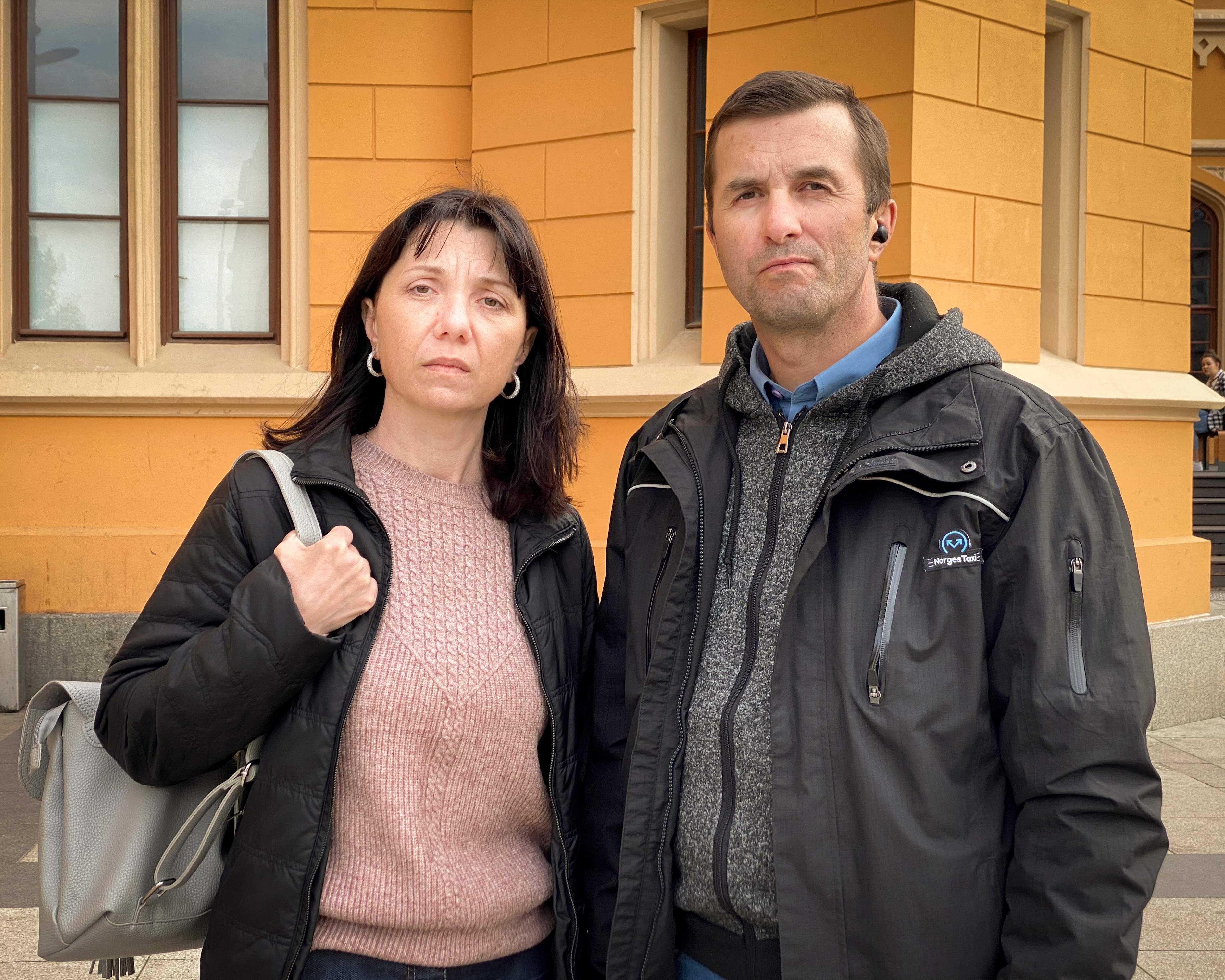Belarus opposition tells Europe to get tougher with Lukashenko and avoid a ‘North Korea on its doorstep’
Europe has targeted Belarus with sanctions but is now urged to go much further

Belarus’s beleaguered opposition has called on the European Union to recognise its “role” in allowing Alexander Lukashenko to build a dictatorship on its borders — by imposing stringent sanctions that strike at the heart of his regime.
Speaking with The Independent, a senior spokesman for Belarus’s president-in-exile Svetlana Tikhonovskaya said European policymakers had long “underestimated” the risk posed by Mr Lukashenko.
“We warned European leaders about the people being disappeared, the media being destroyed, but they kept visiting and making Lukashenko feel untouchable,” Franak Viacorka, a former journalist, said.
“Europe didn’t take responsibility then, but it needs to wise up now if it wants to avoid North Korea appearing on its doorstep.”
Expressing a commonly held view among the Belarusian opposition that European sanctions have been too loose, loopholed and narrowly focused, Mr Viacorka said the response to Sunday’s interception of the Ryanair jet and arrest of dissident Roman Protasevich needed to impose a clearer cost on Mr Lukashenko.
That meant new sanctions on his close circle; on oil; and on the potash industry, Belarus’s only abundant resource and main export.
Pavlo Latushko, Mr Lukashenko’s former culture minister who heads the Belarusian government-in-exile, told The Independent the opposition was also pushing for the Belarusian leader to be declared an “international terrorist”.
That, he said, would make Belarusian credit untouchable around the world. Mr Latushko insisted the idea was plausible, and was already being explored by European courts.
On Wednesday, Bloomberg suggested European leaders were indeed poised to introduce restrictions on potash. But so far, the only confirmed new sanctions on Belarus cover its aviation industry.
The moves to bar Belavia from European skies certainly create a major annoyance for Mr Lukashenko and his regime. The state carrier is now reportedly on the brink of bankruptcy. But the impact is greatest on ordinary Belarusians, who already face severe restrictions leaving via land borders, supposedly introduced in response to Covid-19.
Getting out of the country quickly for, say, a dissident, isn’t going to be easy — and will likely require a trip to Russia.
On public presentation, Mr Lukashenko does not appear fazed by the prospect of economic isolation. In defiant comments on Wednesday, his first since the Sunday incident, he claimed Belarus could replace European markets by moving closer to Russia and Asia. “We’ll substitute Europe, growing mercilessly old, for the rapidly developing Asia,” he said.
The EU is currently Belarus’s second most important trade partner, after Russia, with the landlocked state uniquely dependent on transit. That means sanctions could carry a serious punch. But Nigel Gould-Davies, a former UK ambassador to Minsk, cautioned against the expectation Western sanctions could provide a quick fix.
“It took us ten years of much more severe sanctions on Iran to persuade them to enter the nuclear deal,” he said.
The former ambassador said it was “difficult” to see a way back for Lukashenko in Europe, and sanctions would instead be targeted on persuading those around him.
“On reflection, his political and psychological outlook was, is, rooted firmly in the Soviet past, and that meant he was always more comfortable in a complicated, dysfunctional embrace with Vladimir Putin’s Russia.”
Since the end of August, when Mr Putin put an end to Belarusian mass street protests with an offer of security guarantees, Moscow has thrown its lot behind its volatile neighbour. Long-term strategic calculations — not least the optics of ceding power to the street — mean that is not likely to change. But Sunday’s astonishing incident has certainly created doubts in some quarters.

Belarusian opposition politicians say they have not given up hope that Russia could even facilitate Mr Lukashenko’s departure.
“Friendship with a dictator is becoming more and more toxic for them,” Mr Latushko said. “Sooner rather than later they will understand that money spent on him is wasted money”
The wobbles on the Russian side contrast with momentum and growing “clarity” from traditionally trusting Europeans, he added.
“They have finally understood who Mr Lukashenko is. The time for illusions has passed.”
Join our commenting forum
Join thought-provoking conversations, follow other Independent readers and see their replies
16Comments